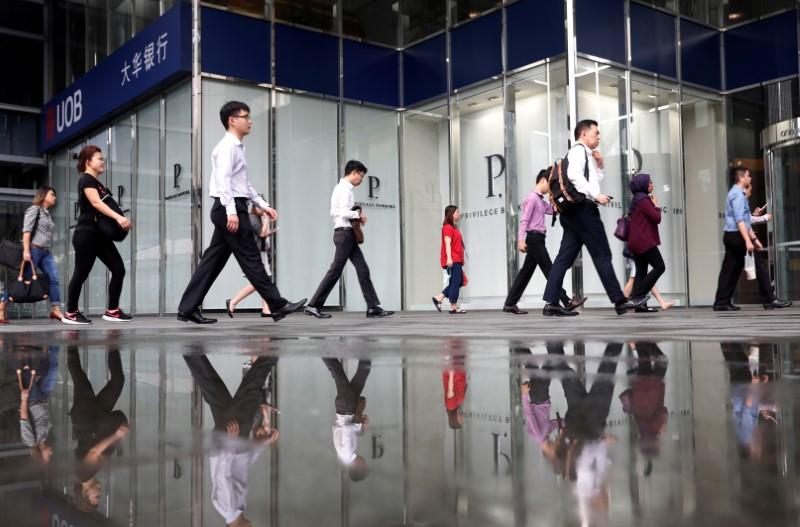
Singapore’s labor demand is expected to improve in the near term but accumulated slack in the market will take time to be absorbed and wage pressures are unlikely to build up rapidly, the central bank said on Friday.
SINGAPORE (Reuters) – Singapore&rsquo-s labor demand is expected to improve in the near term but accumulated slack in the market will take time to be absorbed and wage pressures are unlikely to build up rapidly, the central bank said on Friday.
Domestic cost pressures will continue to be restrained as a result, and also due to factors such as subdued commercial and retail rentals, the Monetary Authority of Singapore (MAS) said in its half-yearly macroeconomic review.
Earlier this month, the central bank kept its exchange-rate based monetary policy unchanged, even as growth picked up in the third quarter.
&ldquo-At this point, while the risk of renewed disinflation has clearly receded, there is little indication of an imminent acceleration in underlying price pressures,&rdquo- the MAS said, adding that it will monitor incoming economic data closely and assess their impact on the growth and inflation outlook.
Singapore&rsquo-s economy is projected to grow at the upper half of the government&rsquo-s forecast range of 2-3 percent in 2017, before moderating slightly in 2018, the MAS said.
In its Oct. 13 monetary policy statement, the MAS had changed a reference to maintaining a neutral policy stance for an extended period, a shift that analysts said created room for a policy tightening next year.
In its report on Friday, the MAS pointed to the likelihood of economic growth becoming more evenly balanced across sectors next year. Growth in trade-related areas such as the electronics industry is likely to moderate, while weakness in construction and oil-related sectors could fade in 2018, it said.
In the coming quarters, real-estate services should see some recovery, alongside firming transaction volumes, it added.
Singapore&rsquo-s private home sales have picked up in recent months from year ago levels, while private home prices rose for the first time in four years in the third quarter, marking a possible turning point for the sector.
The MAS said overall labor demand is expected to improve in the near term, supported by hiring in services-related sectors.
&ldquo-Nevertheless, previously accumulated slack in the labor market will take time to be absorbed, and the unemployment rate will likely remain close to its current level in the near term. Wage pressures are thus unlikely to build up rapidly.&rdquo-
Singapore&rsquo-s overall unemployment rate was 2.1 percent in the third quarter, down from 2.2 percent the previous quarter.
The MAS reiterated its existing inflation forecasts, saying core inflation is expected to come in at around 1.5 percent in 2017 and average 1-2 percent next year. It added that CPI all-items inflation is likely to be around 0.5 percent in 2017 and stay within a range of 0-1 percent in 2018.
 0 comments
0 comments





